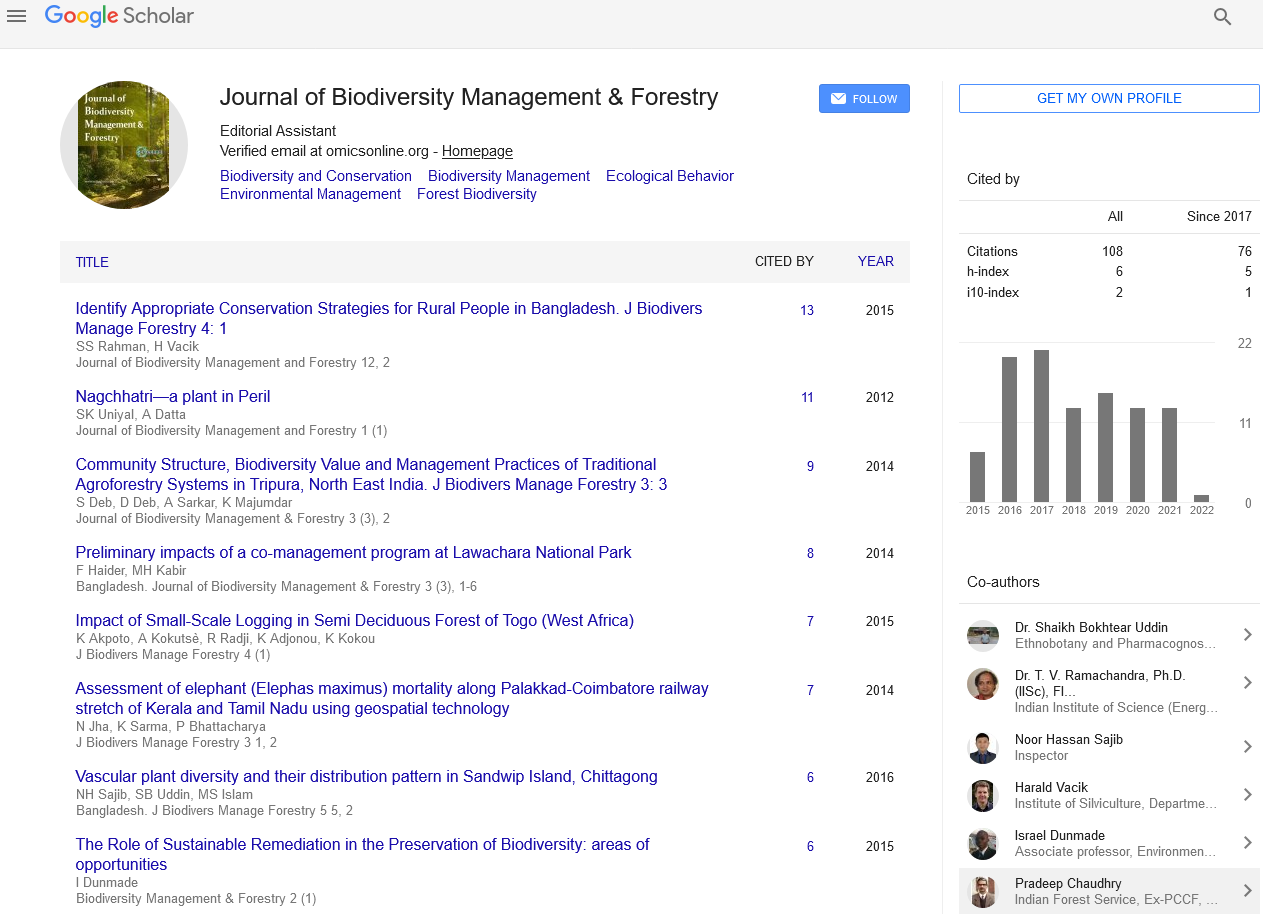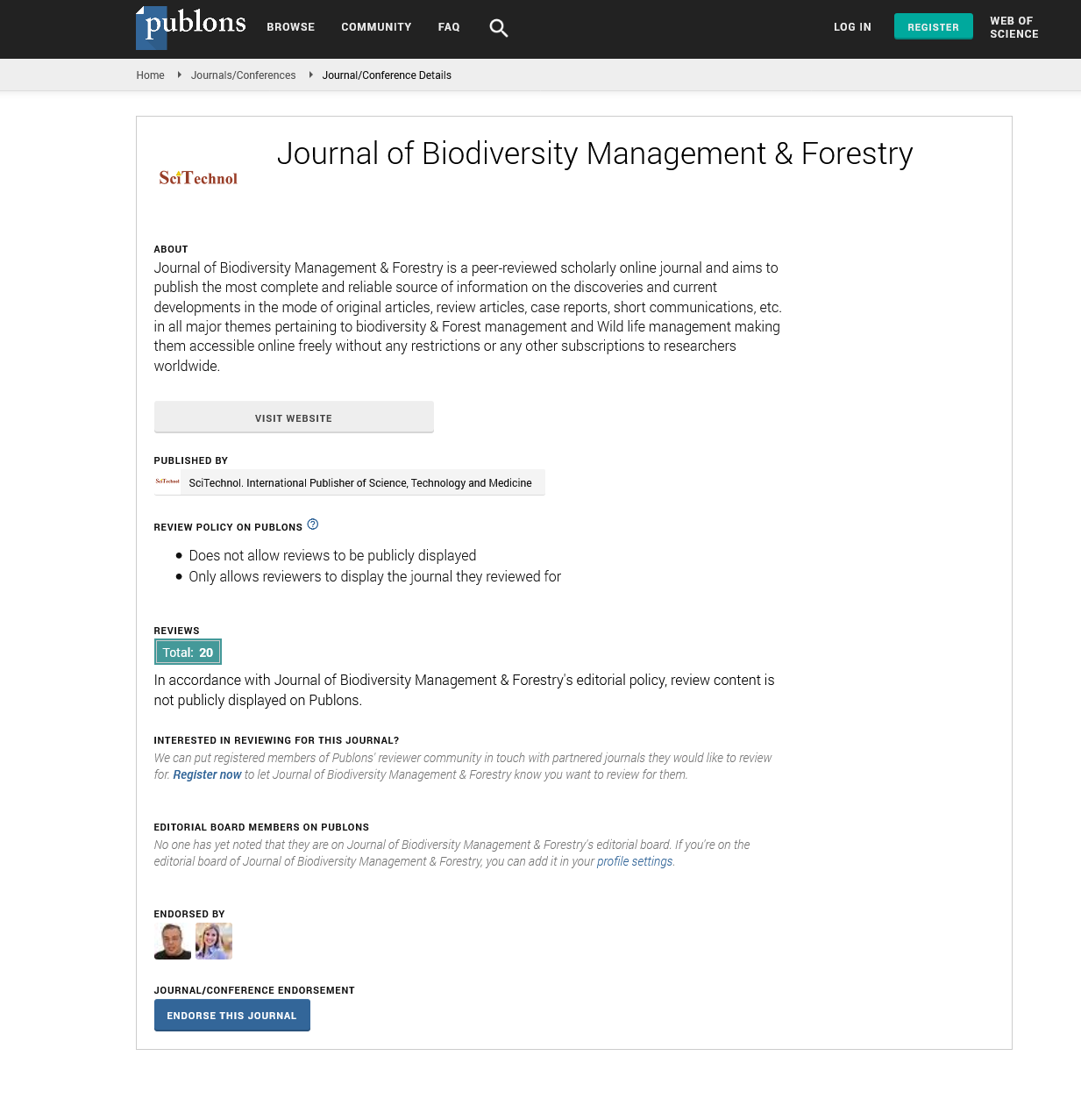Research Article, J Biodivers Manage Forestry Vol: 3 Issue: 3
Evaluation of Natural Regeneration and Tree Species Diversity in Miombo Woodlands in Malawi
| Edward Missanjo*, Gift Kamanga-Thole, Caroline Mtambo and Owen Chisinga |
| Malawi College of Forestry and Wildlife, Private Bag 6, Dedza, Malawi |
| Corresponding author : Edward Missanjo Malawi College of Forestry and Wildlife, Private Bag 6, Dedza, Malawi E-mail: edward.em2@gmail.com |
| Received: February 26, 2014 Accepted: June 03, 2014 Published: June 07, 2014 |
| Citation: Missanjo E, Thole GK, Mtambo C, Chisinga O (2014) Evaluation of Natural Regeneration and Tree Species Diversity in Miombo Woodlands in Malawi. J Biodivers Manage Forestry 3:3. doi:10.4172/2327-4417.1000127 |
Abstract
Evaluation of Natural Regeneration and Tree Species Diversity in Miombo Woodlands in Malawi
A study was conducted to determine the best silvicultural practice to maximise natural regeneration and tree species diversity in miombo woodland in Chongoni Forest Reserve in Malawi. Four trial plots of 50m x 25m with about 10m buffer zone were each subjected to one of the following silvicultural practices: Complete coppice (CC); coppice with standard (CWS); selective thinning (ST); and control was leave it alone (CT). The treatments were completely randomized in three replicates. Twenty years after establishment of the plots an inventory on natural regeneration and tree species diversity was carried out. The results indicate that selective thinning had higher natural regeneration, mainly because of one species, although the differences among silvicultural practices were not significant. Coppice with standard was observed to have the highest tree species diversity. Therefore, coppice with standard has been recommended as one of the future management options in management of miombo woodlands in Malawi in order to maximise tree species diversity whilst maintaining good site cover.
 Spanish
Spanish  Chinese
Chinese  Russian
Russian  German
German  French
French  Japanese
Japanese  Portuguese
Portuguese  Hindi
Hindi 
